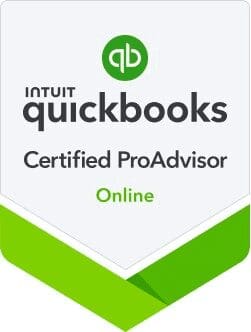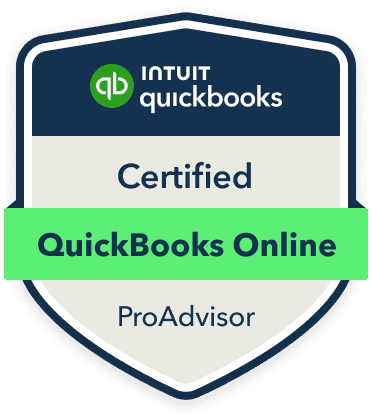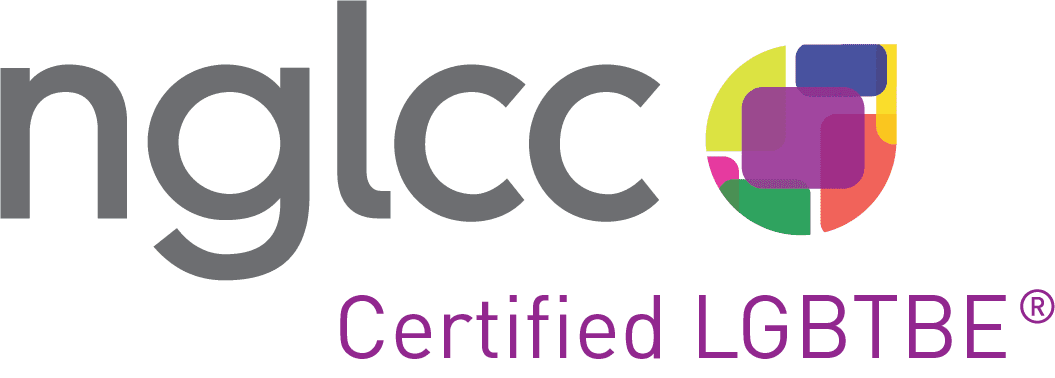Roofing contractors managing projects in Reno face unique financial challenges. Effective contractor accounting systems tailored to the roofing industry directly influence profitability, cash flow, and business sustainability. Many roofing projects span several months and involve significant material costs, making it crucial to have robust billing methods and financial tracking practices. Understanding how to structure billing, manage deposits, and monitor work-in-progress (WIP) helps roofing businesses maintain steady cash flow and accurately measure job profitability throughout a project’s lifecycle.

Progress billing paired with precise Work-in-Progress (WIP) accounting is more than a convenience; it is a survival strategy, especially for roofing contractors handling projects over $500,000 or lasting longer than a month. Billing clients incrementally in stages aligned with project milestones prevents cash flow gaps that could otherwise disrupt operations. Without progress billing, contractors risk waiting months for payment, forcing them to finance ongoing project costs out of pocket.
By breaking large projects into manageable billing segments, roofing contractors gain better control over their finances. Accurate WIP tracking ensures that costs incurred are matched with revenues recognized, providing a clear view of a job’s profitability as it proceeds. Roofing companies that invest in establishing these systems with expert guidance reap the benefit of strengthened cash flow and enhanced financial clarity.
We specialize in helping roofing businesses implement progress billing systems, draft contracts that protect cash flow, and leverage QuickBooks to track job-specific costs in real time. This approach equips roofing contractors with not just theoretical knowledge but practical tools, fostering a financially resilient operation capable of confidently taking on higher-value projects.
Smaller residential roofing jobs under $30,000 and typically completed within two weeks often fit well with completion billing, where invoicing occurs once the project finishes. This straightforward approach suits quick-turnaround projects with lower overhead costs and limited cash flow exposure. However, using completion billing for larger projects can strain a contractor’s finances severely.
For commercial roofing contracts exceeding $500,000, progress billing becomes indispensable. This method involves invoicing clients in increments tied to project milestones or percentages of completion, ensuring regular cash inflows throughout the job. The delay inherent in waiting to bill until project completion can create critical cash shortages that impede material purchases, labor payments, and overall project momentum.
Rought & Accounting helps roofing contractors assess which billing method fits each project, facilitates proper bookkeeping setups for handling multiple billing types, and trains teams to maintain accurate financial records. Through this tailored accounting approach, roofing businesses improve financial stability and maintain operational continuity across all project sizes.
Collecting a down payment upfront is a fundamental practice for roofing contractors to secure client commitment and fund initial job expenses. Industry standards recommend collecting between 10% and 30% of the contract value upfront, with 20% serving as a common benchmark. This deposit covers early material costs and signals client engagement.
Accounting for these deposits correctly is critical. Down payments should be recorded as “Customer Deposits” on the books until work begins, preventing premature revenue recognition and avoiding confusion during tax time. Properly handling these deposits ensures clear cash flow visibility and financial accuracy.
We assist contractors in accurately recording and managing deposits within their accounting systems, eliminating common pitfalls that can cause cash flow mismatches or tax reporting errors. With sound deposit accounting practices, roofing businesses obtain the financial breathing room necessary to start projects confidently and maintain strong client relationships.
Tracking actual job costs against billed amounts through Work-in-Progress (WIP) reporting is essential for managing roofing projects effectively. Without WIP reports, contractors risk either overbilling clients—which can erode trust—or underbilling, which can starve the business of needed working capital. Both outcomes damage profitability and client confidence.
By setting up detailed job costing within accounting software like QuickBooks, roofing contractors gain real-time insight into the financial status of each project. This includes monitoring labor, materials, subcontractor expenses, and overhead applied to jobs. WIP reporting provides the clarity required to adjust billing, control expenditures, and make strategic decisions before financial issues arise.
Our expertise lies in implementing WIP and job costing solutions tailored to roofing companies’ unique demands. Contractors benefit from transparent financial data that supports better cash flow planning, prevents costly mistakes, and positions their businesses for sustainable growth.
Effective contractor accounting turns roofing project challenges into manageable workflows that protect cash flow and enhance profitability. Progress billing and WIP tracking prevent cash shortages and provide ongoing profit visibility. Choosing the right billing method for each job size avoids unnecessary financial risk. Proper management of down payments secures funds upfront, reducing pressure on financial resources.
Roofing contractors in Reno looking to build stronger businesses can gain valuable support by partnering with experts who understand both the roofing industry and accounting best practices. Customized accounting strategies help businesses improve financial control, enabling them to bid confidently on larger projects and grow sustainably. Contacting Rought & Accounting provides access to personalized consultation, helping contractors design billing systems, job costing processes, and bookkeeping solutions tailored specifically to roofing operations. This collaboration improves cash flow management and overall business resilience—key factors for long-term success.
Navigating tax law changes can feel overwhelming, especially in construction where purchasing decisions and hiring processes directly impact your bottom line. The One Big Beautiful Bill Act introduces significant tax updates that affect contractors like you, from equipment write-offs to reporting requirements and expiring credits. Understanding these changes is essential to maintaining healthy cash flow and maximizing your business’s tax benefits. Partnering with a knowledgeable Reno accountant can ensure you stay ahead and fully leverage the opportunities ahead.

One of the most impactful changes is the restoration of 100% bonus depreciation for property acquired after January 19, 2025. This update means you can immediately deduct the full cost of qualifying assets such as equipment, trucks, tools, furniture, and software in the year you place them in service. Previously planned to drop to 40%, this full first-year write-off frees up cash flow by accelerating your return on investment and reducing taxable income significantly. Taking advantage of bonus depreciation now allows your construction business to reinvest savings into operations or new projects without delay. Careful timing of your purchases in consultation with your Reno accountant will be critical to maximize these benefits.
With this restored depreciation, budgeting for capital expenditures becomes more strategic. Instead of spreading the deduction over several years, you gain immediate tax relief that improves financial flexibility. This is particularly valuable in construction, where equipment costs tend to be substantial and ongoing. The ability to fully write off qualifying property right away encourages timely investments that keep your business competitive. Consulting a Reno accountant can help identify which assets qualify and ensure the proper documentation for smooth tax filing.
Starting January 1, 2026, the threshold for 1099 reporting will increase from $600 to $2,000 for payments made to subcontractors. This change reduces the administrative burden by limiting the number of smaller payments requiring detailed reporting. For your construction business, this means less paperwork when paying many subcontractors less than the new threshold, streamlining your year-end reporting process. However, maintaining accurate expense tracking remains essential to support deductions and meet IRS documentation requirements. Partnering with a Reno accountant ensures you adapt your bookkeeping practices effectively under these new rules.
While the reporting burden lessens, vigilance is necessary in managing subcontractor payments and documentation. Proper records will safeguard your business during tax audits or compliance reviews. The threshold increase is designed to ease paperwork, but your systems should continue to reflect true expenses reliably. An experienced Reno accountant can help set up or refine your processes to capitalize on these simplified reporting rules while maintaining solid financial controls. This foundation supports both compliance and sound business decisions.
Several tax credits crucial to your construction operations now require valid Social Security Numbers (SSNs) for eligibility, including the Child Tax Credit, American Opportunity Tax Credit, and Work Opportunity Tax Credit. For your hiring process, this means you must collect and verify SSNs early and accurately from all employees and subcontractors. Meeting these requirements is essential to securing credits that can significantly reduce your tax liability. Failing to do so risks losing valuable benefits and could trigger IRS penalties. A Reno accountant can guide you through updated verification procedures to ensure compliance and maximize your credits.
It’s also important to let your employees and subcontractors know about these tightened SSN requirements in advance. Clear communication helps avoid delays, ensures accurate records, and reduces the risk of missed credits. By preparing your team ahead of time, you’ll streamline the verification process and keep everyone aligned on what’s needed. A Reno accountant can provide the right guidance so you capture these credits without unnecessary complications.
Several important energy-related tax credits will expire soon, including Clean Vehicle Credits on September 30, 2025, and residential solar credits at the end of 2025. Planning equipment or renewable energy project purchases now is critical to take advantage of these incentives before they disappear. For construction businesses, investing in qualifying clean vehicles or solar installations can reduce upfront costs through tax credits, improving project feasibility and environmental responsibility. A Reno accountant can help analyze your options and time purchases strategically for maximum credit capture.
Missing these deadlines means losing out on financial incentives that can lower your effective tax rate and enhance business sustainability. The approaching expiration dates create urgency for contractors to act swiftly. Careful tax planning minimizes lost opportunities and supports your long-term goals in efficiency and cost savings. Consulting a Reno accountant informs your decisions about timing, eligibility, and documentation, positioning your business for optimal advantage before these credits phase out.
Each of these tax law changes impacts your construction operations differently, but together they highlight the need for careful tax planning and expert guidance. Reviewing how the One Big Beautiful Bill Act affects your current and upcoming projects will help create a robust tax strategy tailored to your business goals. Timely consultation with a Reno accountant enables you to schedule equipment purchases, verify documentation for credits, and streamline reporting workflows. Contact Rought & Accounting today to review these critical tax updates comprehensively, prepare for efficient compliance, and leverage incentives that support your growth in the Reno construction market.
In today’s fast-paced and digitally-driven financial landscape, virtual bookkeepers play an increasingly vital role in helping businesses streamline operations and optimize costs. As more companies adopt remote working environments, understanding how virtual bookkeeping integrates with modern finance is essential. This article explores what virtual bookkeeping entails, how it differs from traditional methods, and why it might be the right solution for your business.

At its core, virtual bookkeeping involves managing a business’s financial records remotely. Unlike traditional bookkeepers, virtual bookkeepers use the latest technologies to provide services from any location, offering flexibility and real-time financial insights. This shift reduces overhead costs and allows business owners to focus on strategic decisions rather than day-to-day financial operations.
Virtual bookkeeping offers numerous benefits, including cost efficiency and flexibility. By eliminating the need for physical office space and offering scalable services, businesses can manage finances more efficiently. Virtual bookkeepers bring expertise and access to advanced financial tools, ensuring that your business remains ahead in managing its finances.
Virtual bookkeeping has transformed the way financial records are managed. Leveraging digital platforms and cloud-based software, virtual bookkeepers handle transactions remotely, providing real-time updates without the need for in-person meetings. Unlike traditional bookkeeping, which involves physical documentation, virtual bookkeeping ensures data is securely stored and easily accessible, making it a more efficient and eco-friendly option.
Virtual bookkeepers offer a wide range of services, from data entry and ledger management to full-scale financial analysis and payroll processing. This shift to digital bookkeeping highlights the importance of technical proficiency in today's financial landscape.
The transition to virtual bookkeeping offers significant benefits. One of the primary advantages is the reduction of overhead costs. Without the need for physical storage or office space, businesses save on operational expenses. Additionally, virtual bookkeeping allows for easy scalability, ensuring that as your business grows, the services can grow with it without hiring additional staff.
Another advantage is the enhanced accuracy and timeliness provided by automation tools and real-time data processing. Virtual bookkeepers help businesses maintain up-to-date, accurate financial records, allowing for quicker decision-making in a competitive market.
Virtual bookkeeping also offers robust security features. Cloud-based systems provide advanced security measures, reducing the risk of local data breaches or physical theft. Features like data encryption and regular backups ensure that sensitive financial information is protected, giving business owners peace of mind.
In conclusion, virtual bookkeeping represents a significant advancement in financial management. By embracing modern technologies, businesses gain efficiency, security, and scalability, making virtual bookkeeping a smart option for forward-thinking companies.
Choosing the right virtual bookkeeper can streamline your financial processes and enhance decision-making. Look for professionals with industry-specific experience and familiarity with modern accounting tools. The right virtual bookkeeper will not only understand your financial needs but will also provide expert insights to help your business grow.
Before hiring a virtual bookkeeper, it’s essential to assess your business's specific financial needs. This includes evaluating the scale and complexity of your transactions and understanding any industry-specific challenges that may impact your bookkeeping. For instance, a business dealing with international transactions requires a bookkeeper experienced in handling foreign exchange and global finance regulations.
Effective communication is another crucial factor. Bookkeeping involves more than just crunching numbers—it often requires problem-solving and decision-making. Your virtual bookkeeper should be proactive in providing financial updates and insights and should communicate complex accounting terms clearly.
Lastly, consider the scalability of the services offered. As your business grows, so will your financial requirements. Ensure your virtual bookkeeper can scale their services accordingly, without sacrificing the quality or timeliness of reports.
Ready to streamline your bookkeeping and focus on growing your business? Contact us today to learn more about how our virtual bookkeeping services can meet your unique needs and evolve with your business.
In the bustling world of business, having dependable accounting services is not just beneficial—it’s essential. For businesses in Reno and beyond, a looming national accountant shortage poses new challenges and strategic demands. This shortage, driven by an aging workforce, fewer graduates entering the profession, and shifts caused by the COVID-19 pandemic, is impacting businesses at all levels. During the pandemic, many professionals in accounting adapted to remote work. However, some firm owners were slower to embrace this change, leading to an acceleration in retirements across both public and private sectors. As accountants moved up or transitioned from public to private roles, it created significant gaps in the workforce. Understandably, this shortfall could affect your operations, planning, and financial management.

The Scope of the Accountant Shortage
Between 2019 and 2022, more than 300,000 accountants left the industry, intensifying the accountant shortage in the United States. The combined factors of an aging workforce, changes in workplace expectations brought on by COVID, and fewer professionals entering the field have left a significant void. As senior accountants retire, the shortage of qualified replacements means businesses must now reconsider their financial strategies and find alternative ways to handle essential accounting tasks. For Reno businesses, understanding this shortage is key to planning future financial operations and maintaining smooth financial management.
Impact on Reno’s Small and Medium Businesses
Small and medium-sized enterprises (SMEs) in Reno are particularly vulnerable to the accountant shortage. These businesses often operate with limited resources, making them more susceptible to challenges like delayed financial reporting, compliance issues, and hindered growth due to a lack of strategic financial guidance. The shortage forces businesses to consider alternative solutions, such as outsourcing their accounting functions or adopting more sophisticated software.
Adaptive Strategies and Solutions for Reno Businesses
Thankfully, there are adaptive strategies that businesses in Reno can adopt to mitigate the impact of the accountant shortage. Leveraging technology, such as advanced accounting software and automation tools, can help streamline financial tasks. Additionally, outsourcing accounting services to specialized firms can bridge the gap created by the shortage.
At Rought & Accounting, we offer personalized solutions tailored to help businesses navigate these turbulent waters effectively. Whether it’s providing expert advice or handling day-to-day accounting tasks, we ensure that your business continues to run smoothly despite the national shortage.
Economic and Educational Drivers Behind Reno's Accountant Shortage
The national accountant shortage is driven by both economic and educational factors. The demand for accountants has surged as businesses grow and financial regulations become more stringent. At the same time, fewer students are choosing accounting as a career due to perceptions that it lacks dynamism compared to other fields like technology. Moreover, the rigorous CPA exam further discourages potential candidates from entering the profession.
This shortage is further compounded by the inability of educational institutions to keep up with modern accounting technologies, such as artificial intelligence and blockchain, leaving new graduates underprepared for the demands of today’s accounting landscape.
Future Outlook of Accounting Careers in Reno
The future of the accounting profession is changing, with a growing focus on technology integration and evolving business environments. Automation, AI, and data analytics are becoming increasingly important, reshaping the role of accountants from traditional number crunchers to strategic business advisors. Accountants who adapt to these changes and stay ahead of technological trends will find themselves in high demand, especially as businesses continue to rely on their expertise for more complex decision-making processes.
Contact Rought & Accounting today to learn how our expert accounting services can help your business overcome the challenges posed by the national accountant shortage, ensuring your financial stability and success.
Starting a new business in Reno can be exciting and challenging. As a beginner, understanding the basics of accounting is crucial to ensure your financial health and compliance with regulations. In this article, we provide essential accounting tips for beginners, tailored by a Reno accountant, to help you make informed decisions and streamline your finances.
To effectively manage your business finances, it's essential to familiarize yourself with basic accounting terms. A Reno accountant can help you understand key terms such as:
Understanding these terms will help you read and interpret financial statements, such as balance sheets and income statements, which are vital for making informed business decisions.
An efficient accounting system is the backbone of any successful business. A Reno accountant can guide you through the steps to set up a robust accounting system:
By setting up an efficient accounting system, you can streamline your financial processes and focus more on growing your business.

Managing business expenses is crucial for maintaining profitability and financial stability. Here are some tips to manage your expenses effectively:
By managing expenses wisely, you can maximize your profits and ensure long-term financial health.
Tax planning is an essential aspect of managing your business finances. Proper tax planning helps you minimize tax liability and avoid penalties. Here are some tax planning tips for beginners:
By planning for taxes effectively, you can reduce your tax burden and keep more of your hard-earned money.
Starting a new business in Reno is an exciting venture, but it comes with financial responsibilities. Understanding basic accounting terms, setting up an efficient accounting system, managing business expenses wisely, and planning for taxes are essential steps for beginners. For personalized accounting services and more detailed advice, contact Rought & Accounting. Subscribe to our newsletter for more financial insights and follow us on social media for real-time updates.
Understanding the differences between financial accounting and management accounting can help business owners and financial managers make more informed decisions. At Rought & Accounting in Reno, NV, we provide expert advice to guide you through these distinct accounting practices. Let’s explore the key differences and how each can benefit your business.
The primary purpose of financial accounting is to create financial statements that provide information to external stakeholders. These stakeholders include investors, creditors, and regulatory bodies. Financial accounting helps them understand the financial health and performance of your business.
In contrast, management accounting is designed for internal decision-making. It provides detailed financial and non-financial information to managers to help them make strategic business decisions. This can include budgeting, forecasting, and performance analysis. Management accounting is more about providing actionable insights than adhering to external reporting standards. At Rought & Accounting, we not only want you to learn about these differences, but OMG, we've got a certified person on staff for this very thing! Judi, our Certified Management Accountant (CMA), is here to guide you through every aspect of management accounting.

Financial accounting is primarily retrospective, dealing with historical data. It compiles and reports past financial transactions. This historical perspective allows external stakeholders to see how the company has performed over a specific period. It is essential for compliance and financial transparency.
On the other hand, management accounting is forward-looking. It focuses on future projections and current data to assist in planning and decision-making. Managers use this information to set future goals, allocate resources, and plan for potential challenges.
Financial accounting must adhere to strict regulations and standards, such as Generally Accepted Accounting Principles (GAAP) or International Financial Reporting Standards (IFRS). These standards ensure consistency, reliability, and comparability of financial statements across different organizations. Compliance with GAAP or IFRS is mandatory for financial accounting. These standards provide a framework for preparing financial statements, ensuring they meet legal and regulatory requirements. This consistency is crucial for external stakeholders who rely on these reports for decision-making.
In contrast, management accounting is more flexible and not bound by these strict standards. Managers can tailor reports to meet the specific needs of the business. This flexibility allows for more detailed and relevant information that can drive better decision-making.
Financial accounting often provides a summarized view of the overall business performance. It aggregates data to present a clear picture of the company’s financial health. The reports generated through financial accounting offer a high-level overview of the company’s performance. This summary is useful for external stakeholders but may lack the detailed insights needed for internal decision-making.
Management accounting, however, involves a deeper, more detailed analysis of business metrics. Managers use this detailed information to make strategic decisions that affect the company’s operations and future growth. This in-depth analysis helps in identifying areas of improvement and opportunities for efficiency.
Accounting software can significantly simplify your bookkeeping tasks. Selecting the right software tailored to your business needs can enhance efficiency and accuracy. At Rought & Accounting, we recommend QuickBooks Online (QBO) for its comprehensive features and user-friendly interface. QuickBooks Online offers automated transaction recording, expense tracking, and financial reporting, making it an excellent choice for small businesses.
Take full advantage of the automation features offered by QuickBooks Online. Automated bank feeds, expense categorization, and recurring invoices can save you valuable time and reduce manual entry errors. By automating routine tasks, you can focus more on strategic financial planning and less on data entry.
Understanding the differences between financial and management accounting can significantly impact your business strategy. For personalized accounting services tailored to your business needs, contact Rought & Accounting in Reno, NV. Our tax experts, are here to help you navigate these accounting practices and ensure you make informed decisions. Contact us today to learn more about our services and schedule a consultation today.
As the year draws to a close, small businesses face the daunting task of year-end bookkeeping. Ensuring your financial records are accurate and organized is crucial for a smooth transition into the new year. At Rought & Accounting, we understand the challenges small businesses face, and we're here to help you streamline your year-end bookkeeping with effective strategies.
One of the most critical steps in streamlining your year-end bookkeeping is organizing your financial documents early. Begin by creating a comprehensive checklist of all necessary documents, including bank statements, receipts, invoices, and payroll records. Having a checklist ensures that no essential documents are overlooked and helps you stay organized throughout the process. Incorporate a bookkeeping clean-up to ensure all documents are accurate and up-to-date.
Developing a systematic filing method is equally important. Whether you prefer digital or physical files, ensure each document is categorized and easily accessible. A well-organized filing system saves time when you need to retrieve specific documents and reduces the likelihood of errors. Regularly clean up your bookkeeping records to maintain an organized and efficient filing system.

Accounting software can significantly simplify your bookkeeping tasks. Selecting the right software tailored to your business needs can enhance efficiency and accuracy. At Rought & Accounting, we recommend QuickBooks Online for its comprehensive features and user-friendly interface. QuickBooks Online offers automated transaction recording, expense tracking, and financial reporting, making it an excellent choice for small businesses. Other popular options include Xero and FreshBooks. Ensure regular bookkeeping clean-ups to maintain accurate software records.
Take full advantage of the automation features offered by your accounting software. Automated bank feeds, expense categorization, and recurring invoices can save you valuable time and reduce manual entry errors. By automating routine tasks, you can focus more on strategic financial planning and less on data entry. Schedule periodic bookkeeping clean-ups to verify the accuracy of automated entries.
Regularly reconciling your accounts is a crucial step in maintaining accurate financial records. Reconciliation involves comparing your financial records with bank statements to ensure they match. This process helps identify discrepancies, catch errors, and prevent fraud. Make it a habit to reconcile your accounts monthly to avoid a last-minute rush at year-end. Incorporate a detailed bookkeeping clean-up process to systematically review and correct any errors found.
A thorough financial review allows you to identify and correct errors. Look for inconsistencies, such as duplicate entries, missing transactions, or miscategorized expenses. Correcting these errors promptly ensures your financial statements accurately reflect your business's financial health and makes year-end reporting more straightforward.
Planning for tax obligations is essential for a smooth year-end close. Familiarize yourself with the tax requirements specific to your business and industry. Understanding what deductions you qualify for and what documentation is needed can save you time and money. Rought & Accounting offers expertise in tax planning to help you navigate these complexities. A year-end bookkeeping clean-up ensures that all tax-related documents are accurate and complete.
Avoid the stress of scrambling to pay taxes by setting aside funds throughout the year. Estimate your tax liability based on your current financials and set aside a portion of your revenue regularly. This proactive approach ensures you have sufficient funds to cover your tax obligations without impacting your cash flow. Regular bookkeeping clean-ups help maintain an accurate estimation of your tax liabilities.
Implementing these strategies can significantly streamline your year-end bookkeeping and improve your business's financial health. For personalized assistance, set an appointment with Rought & Accounting. Our team can help you implement these strategies and ensure your bookkeeping processes are efficient and accurate, setting you up for success in the new year.
As a business owner, understanding the differences between accountants and bookkeepers is crucial for making informed decisions about your financial management. Whether you're searching for accounting and bookkeeping services near or trying to figure out which professional you need, knowing their distinct roles is essential. Both roles are essential, but they serve different purposes. In this article, we'll explore the responsibilities, qualifications, costs, and how to choose the right service for your business needs.
Accountants play a vital role in your business by preparing financial statements, conducting audits, filing taxes, and providing strategic financial advice. They ensure compliance with laws and regulations, helping you navigate the complexities of financial management. Accountants often hold certifications such as CPA (Certified Public Accountant), which signifies their expertise and commitment to professional standards.

Bookkeepers manage the daily financial transactions of your business. They record transactions, manage accounts payable and receivable, and maintain accurate ledgers. While their role is more administrative, ensuring that records are accurate and up-to-date is crucial for the smooth operation of your business. Unlike accountants, bookkeepers typically do not provide in-depth financial analysis or strategic planning.
Accountants usually hold a bachelor's degree in accounting or finance and may pursue additional certifications like CPA, CMA (Certified Management Accountant), or CFA (Chartered Financial Analyst). This advanced education and certification enable them to handle complex financial tasks and offer strategic insights.
Bookkeepers often require a high school diploma or an associate degree. Certification programs, such as those from the American Institute of Professional Bookkeepers (AIPB), can enhance their qualifications. These programs demonstrate their expertise and commitment to maintaining high standards in bookkeeping.
Due to their advanced qualifications and broader scope of services, accountants generally charge higher fees. Their services are ideal for tasks requiring detailed financial analysis, tax preparation, and strategic financial planning. Investing in an accountant can be beneficial for long-term financial health and compliance.
Bookkeepers typically charge lower fees compared to accountants. They are perfect for managing daily financial transactions, maintaining accurate records, and ensuring compliance with basic financial regulations. For small businesses or those with straightforward financial needs, bookkeepers offer a cost-effective solution.
Evaluate your business needs to determine whether you require the detailed financial analysis and advisory services of an accountant or the daily transaction management of a bookkeeper. Assess the complexity of your financial situation and the specific tasks you need help with.
Consider your budget and the complexity of your financial needs. If your business is small and primarily requires help with basic financial tasks, a bookkeeper may be sufficient. For more complex financial management and strategic planning, an accountant is the better choice.
Some businesses benefit from using both accountants and bookkeepers. Bookkeepers handle daily transactions and record-keeping, while accountants provide higher-level analysis and strategic advice. This hybrid approach ensures comprehensive financial management tailored to your business's needs.
After reading this article, we encourage you to contact Rought & Accounting for personalized advice on your specific financial needs. Visit our website or schedule a consultation to learn how our accounting and bookkeeping services near me can benefit your business.
Developing a robust accounting system is crucial for the success of any startup. Efficient accounting practices ensure accuracy, compliance, and strategic decision-making, helping your business thrive in a competitive landscape. At Rought & Accounting, we specialize in guiding startups through the maze of financial management, ensuring that your accounting systems are not just compliant but also optimized for your unique business needs.

In the fast-paced world of startups, efficiency is key. Automating repetitive accounting tasks such as expense management, bank reconciliation, payroll processing, and financial reporting can save invaluable time and reduce errors. Automation enhances the effectiveness of your accounting operations, allowing you to focus on core business activities while maintaining accurate financial records.
The digital age has made cloud-based accounting solutions a game-changer for startups. By adopting cloud storage, you minimize the reliance on paper, leading to increased productivity and significant environmental benefits. Cloud-based systems secure your data and improve accessibility, ensuring that you can manage your finances anytime, anywhere, with just a few clicks.
Selecting the right accounting software is pivotal for your startup. It should align with your business’s specific needs, offering the right features, user-friendliness, and compatibility with your operations. Instead of relying solely on free trials, which may require repeatedly setting up your books, invest time in thorough research and request demonstrations from software providers. This approach helps ensure the software not only fits your current needs but also accommodates future growth.
The world of accounting is ever-evolving, and so should your accounting system. Regular evaluations and updates are essential to keep your system efficient and compliant. Additionally, investing in training and support services ensures that your team can maximize the benefits of your accounting software, keeping your startup ahead of the curve.
At Rought & Accounting, we understand the challenges startups face in developing and improving their accounting systems. Our expertise is tailored to help you streamline your accounting processes, reduce manual errors, and make informed financial decisions. Whether you’re laying the foundation of your startup’s accounting system or looking to optimize an existing one, our team is here to guide you every step of the way.
Developing and improving your startup’s accounting system is a vital step towards securing its financial health and future success. By embracing automation, cloud-based solutions, and the right software, you can build a robust accounting framework that supports efficient operations and strategic decision-making. Remember, at Rought & Accounting, we’re more than just your accountants; we’re your partners in growth, dedicated to helping your startup navigate the complexities of financial management.
In today's fast-paced business environment, efficiency, expertise, and financial clarity are not just advantages—they are necessities. For many small to medium-sized businesses, achieving this level of financial management internally can be a challenge, often diverting valuable resources away from core business functions. This is where the benefits of outsourced accounting come into sharp focus. Rought & Accounting, with its comprehensive suite of accounting services, stands ready to guide businesses through the complexities of modern financial management, ensuring they remain competitive and financially sound.

One of the most immediate benefits of outsourced accounting is the significant cost savings it offers. For businesses considering the switch, it's essential to understand that maintaining an in-house accounting department comes with substantial overhead costs—salaries, benefits, training, and not to mention the space and technology they require. By partnering with a firm like Rought & Accounting, businesses can access a team of accounting experts without the financial burden of full-time staff. This strategic move not only reduces expenses but also converts fixed costs into variable costs, providing more flexibility in budget management.
In the realm of accounting and financial management, staying abreast of the latest technologies and regulatory changes is crucial. Outsourced accounting firms invest heavily in cutting-edge technologies and continuous staff training to serve their clients better. Rought & Accounting brings this advantage to its clients, offering access to a team of professionals who are experts in the latest financial software and regulatory standards. This ensures that financial reporting, tax planning, and decision-making are based on the most current and accurate information available, enabling better strategic planning and risk management.
By outsourcing accounting functions, business owners and their teams can reallocate their time and resources towards areas that drive growth and innovation. This shift in focus can lead to improved product development, customer service, and market expansion efforts. The peace of mind that comes from knowing that financial matters are being handled by experts cannot be overstated. It allows business leaders to concentrate on their vision for the company without being bogged down by the complexities of financial management and compliance.
As businesses grow and evolve, their financial management needs can change dramatically. Outsourced accounting services offer unparalleled scalability and flexibility, allowing businesses to adjust the level of service they receive based on current needs. Whether scaling operations up in times of growth or down during slower periods, Rought & Accounting can adapt its services accordingly, ensuring that businesses have the financial support they need at every stage of their development.
In a landscape where business agility and financial acumen are more critical than ever, the value of outsourced accounting cannot be overstated. From cost savings and access to expertise to improved operational efficiency and scalability, the benefits are clear. For businesses looking to streamline their financial operations and focus on growth, Rought & Accounting offers the expertise and support needed to navigate the complexities of modern finance.



